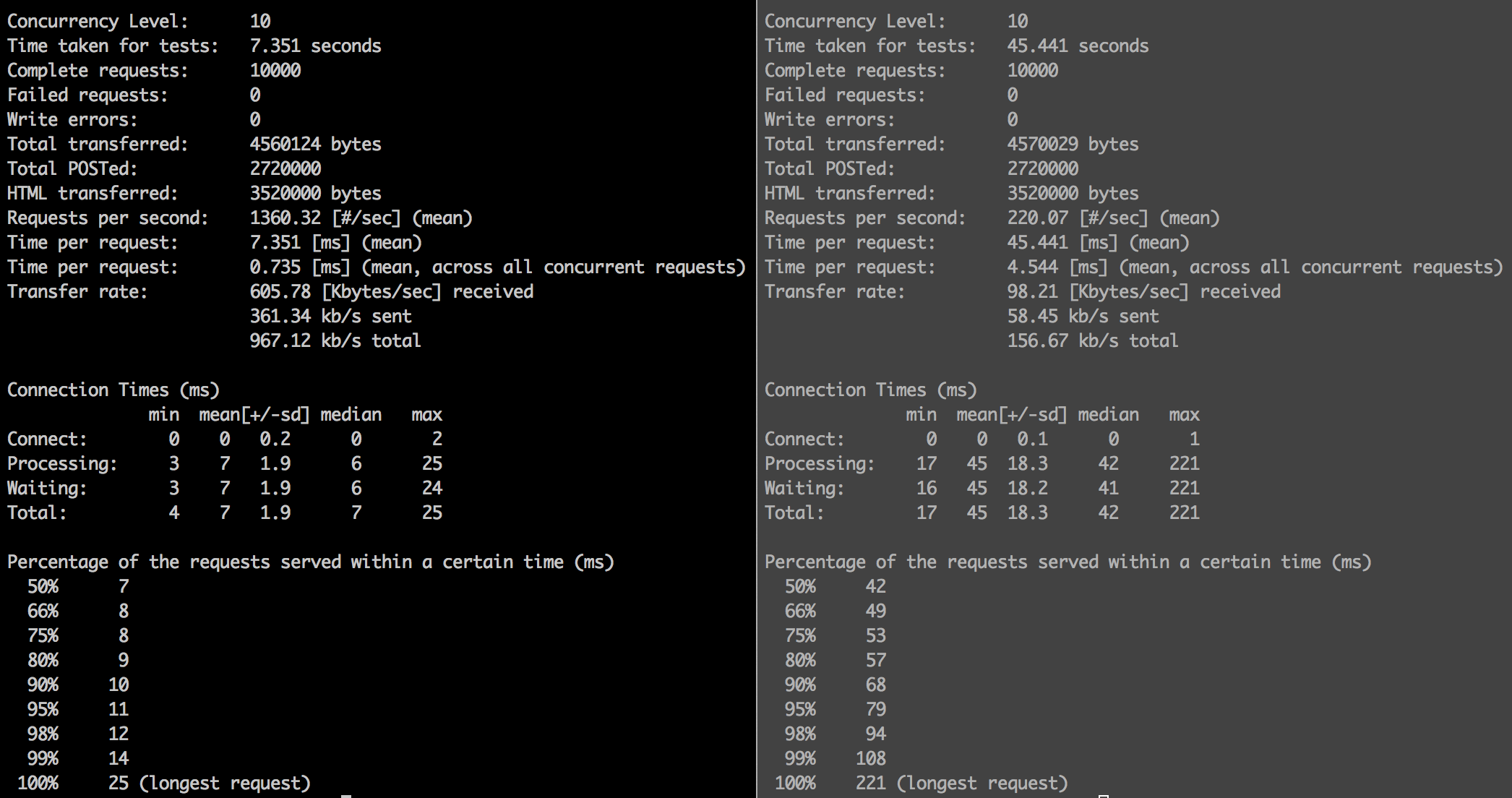Last week I learned about an important tweak in NewRelic configuration to avoid performance issues with Play Scala webframework.
While benchmarking our play-scala app I was surprised to see poor performance numbers given that play framework claims to be one of high performant web frameworks around. App wasn’t able to serve more than 200~230 requests per seconds for a simple DB lookup operation. Some serious digging revealed that default configuration of NewRelic for Play framework adds serious drag to the app’s performance.
I contacted folks at NewRelic and they were quick to respond. Here is what I learned from them about the instrumentation:
In order to properly track async activity, we instrument Scala promises and futures. Unfortunately naming the tracers using these classes are not helpful at all. In effort to improve trace segment naming, I take a Thread.stacktrace and navigate up the stack to find a useful caller and name based on that. The call to Thread.stacktrace can be relatively expensive and result in significant overhead. The setting we suggested disables this functionality and has reduced overhead significantly for several other customers.
So, all you need to do is to turn off stack_based_naming in your newrelic.yml. Remember to put this configuration under transaction_tracer section.
transaction_tracer:
stack_based_naming: false
Here is a side by side comparison of running Apache Benchmark (ab) with 10K requests with concurrency of 10 with/without the configuration tweak.

You can see the difference in throughput 1300 requests per second vs 220 requests per second.
NewRelic should turn off stack_based_naming setting by default.
Hope you find this tip helpful. If I had known about it, it would have saved me couple of days :).